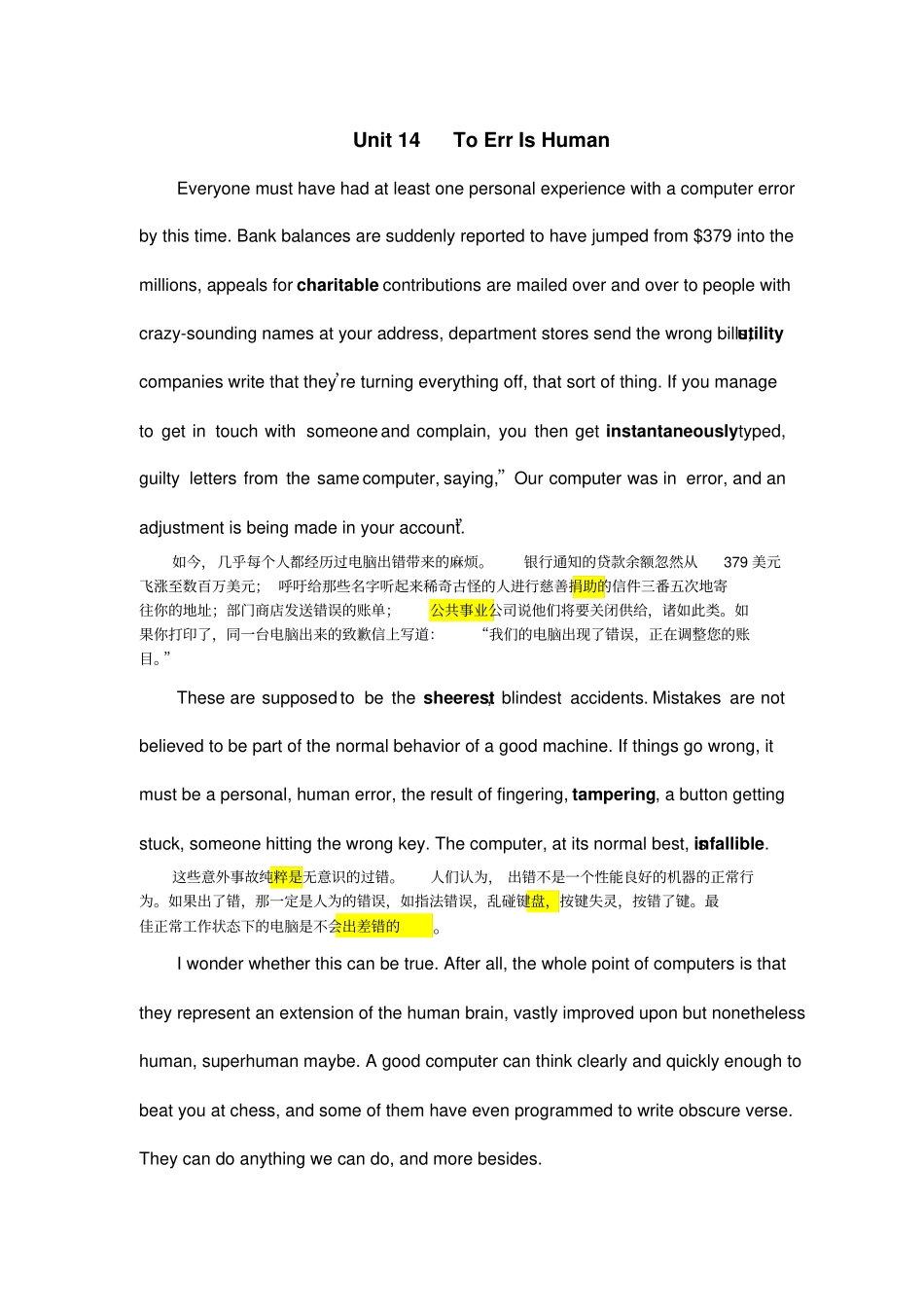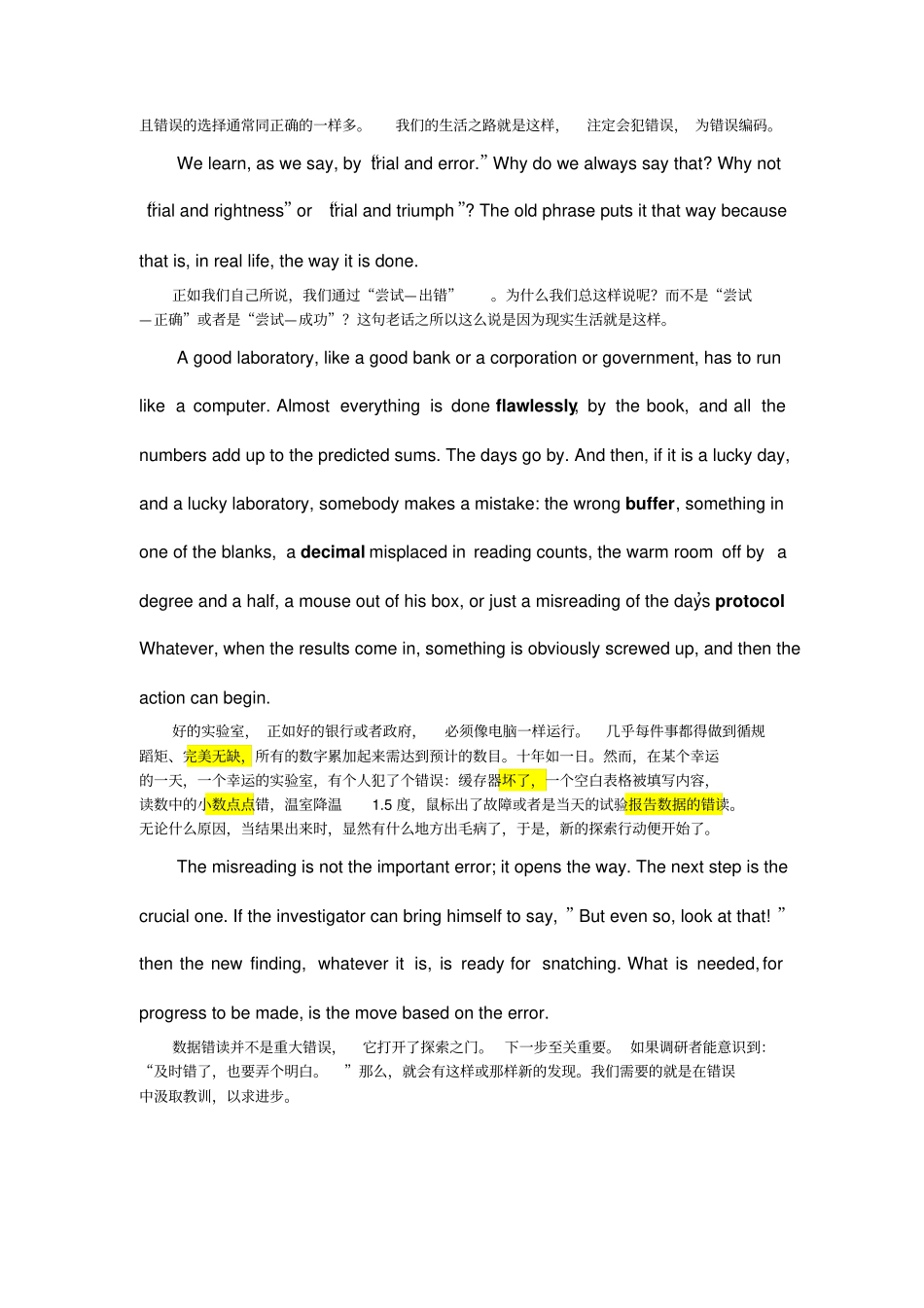Unit 14 To Err Is Human Everyone must have had at least one personal experience with a computer error by this time. Bank balances are suddenly reported to have jumped from $379 into the millions, appeals for charitable contributions are mailed over and over to people with crazy-sounding names at your address, department stores send the wrong bills, utility companies write that they’re turning everything off, that sort of thing. If you manage to get in touch with someone and complain, you then get instantaneouslytyped, guilty letters from the same computer, saying,”Our computer was in error, and an adjustment is being made in your account.”如今,几乎每个人都经历过电脑出错带来的麻烦。银行通知的贷款余额忽然从379 美元飞涨至数百万美元; 呼吁给那些名字听起来稀奇古怪的人进行慈善捐助的信件三番五次地寄往你的地址;部门商店发送错误的账单;公共事业公司说他们将要关闭供给,诸如此类。如果你打印了,同一台电脑出来的致歉信上写道:“我们的电脑出现了错误,正在调整您的账目。”These are supposed to be the sheerest, blindest accidents. Mistakes are not believed to be part of the normal behavior of a good machine. If things go wrong, it must be a personal, human error, the result of fingering, tampering, a button getting stuck, someone hitting the wrong key. The computer, at its normal best, is infallible. 这些意外事故纯粹是无意识的过错。人们认为, 出错不是一个性能良好的机器的正常行为。如果出了错,那一定是人为的错误,如指法错误,乱碰键盘,按键失灵,按错了键。最佳正常工作状态下的电脑是不会出差错的。I wonder whether this can be true. After all, the whole point of computers is that they represent an extension of the human brain, vastly improved upon but nonetheless human, superhuman maybe. A good computer can think clearly and quickly enough to beat you at chess, and some of th...


